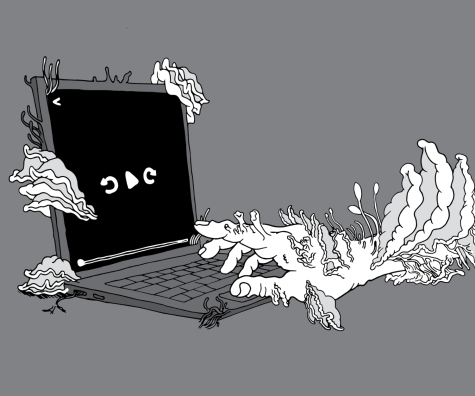Coping with election anxiety
November 5, 2020
I’m not sure if you’ll be reading this article with a huge sigh of relief or a sinking feeling of grief. Many Americans describe 2020 as one of the worst years in recent memory. It features a global pandemic, natural disasters, anarchic civic unrest and the stakes in this year’s election are enormously high. A recent survey by the American Psychological Association found that 70 percent of people said the election is a significant source of stress, and 77 percent are worried about the country’s future.
Americans aren’t just stressed over whether or not their candidates win, they’re also anxious over whether they filled out their absentee ballots correctly and whether their vote was really counted. They’re anxious about civic unrest and a peaceful transfer of power. Many are suspicious of foreign influences in the election and predicted chaos for the weeks after results are announced.
Most people have been dwelling in uncertainty for a long time after the 2016 presidential election dealt a blow to the credibility of election polling when Hillary Clinton lost a race she was predicted to win. People have been waiting for weeks, if not months, worried and confused, and are afraid to trust pollsters. Worse, we do not know how long our stress about the election will persist.
However, here are a few suggestions from experts about how to cope with that anxiety:
- Reduce your daily consumption of the news, and enforce limits on politics in your daily life. Try to limit your exposure to news about the election, and invest your time in things where you feel there is meaning and stability. If you feel glued to the TV or the radio for fear of missing some vital detail, you’ll quickly feel overwhelmed. The news can steep your personal life in politics, and watching TV isn’t activism. You deserve to set some boundaries.
- Recognize when you’re mentally replaying 2016. If you felt traumatized by the 2016 election, this election may replay those memories and emotions, and contribute to the layers of stress and anxiety. If you voted for Clinton, then you were probably shocked and horrified by the result. If you voted for Trump, then you might’ve felt vilified for your choice. These feelings of deceit and betrayal are difficult to navigate, and being mindful of this extra anxiety may help quell some of your worries.
- There are always some simple, healthy habits that are known to help us fight stress: eating healthy, sleeping well and staying active. Amidst the chaos, try to avoid putting yourself in paradoxes of deservingness. No matter the outcome of the election and no matter the unrest that follows, you deserve to be happy and to feel safe.
If you have to remove yourself temporarily from political spheres, that’s okay. You deserve that peace of mind. Maintain your social connections, and perhaps most importantly, talk to people. We’re all going through similar anxieties, and one of the best things we can do is talk to each other. Share with someone the tensions and negative emotions you’re dealing with, and try to neutralize them together.






